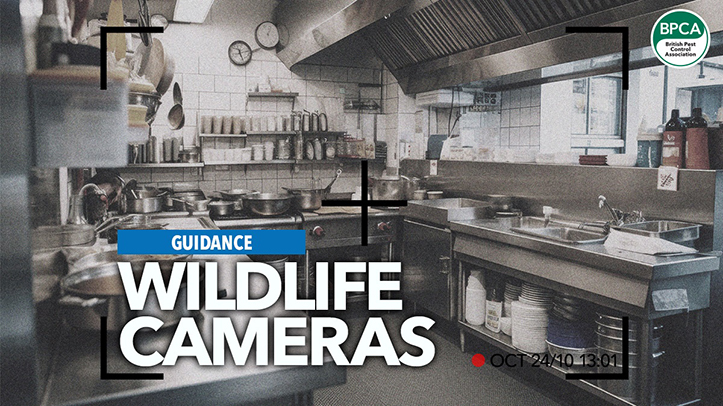The British Pest Control Association (BPCA) has issued new guidance to help pest management professionals use wildlife cameras legally, ethically and professionally when working on customer premises.
Wildlife cameras are now widely used by technicians to confirm pest presence, assess proofing and monitor activity without being onsite. However, when cameras are placed inside homes or commercial buildings, BPCA warns that pest professionals must comply with strict privacy and data protection laws.
Under the UK General Data Protection Regulation (UK GDPR) and the Data Protection Act 2018, any footage or audio that could identify a person counts as personal data. This means pest companies could be classed as data controllers, making them legally responsible for how that footage is captured, stored and used.
BPCA’s guidance outlines practical steps to stay compliant, including:
- Always obtaining informed customer consent before installation;
- Minimising what is recorded and avoiding private spaces such as bedrooms or bathrooms;
- Keeping footage secure and deleting it once no longer needed; and
- Maintaining clear documentation, such as a Data Protection Impact Assessment (DPIA) and privacy notices.
The Association reminds members that even incidental footage, such as a homeowner appearing briefly in a clip, may fall under data protection rules.
BPCA’s Technical team recommends that technicians “be transparent, proportionate and professional” every time a camera is installed. That includes explaining what will be recorded, where the camera points and how long the footage will be retained.
Choosing the right equipment
The guidance also explores the pros and cons of different camera types. Trail cameras are best for offline monitoring in sensitive areas, while Wi-Fi and LTE models allow remote access but carry additional cybersecurity risks.
Technicians connecting to a customer’s Wi-Fi are advised to seek explicit consent, use strong passwords, and keep firmware updated to prevent unauthorised access or data leaks.
Good practice and professionalism
BPCA emphasises that responsible camera use builds customer trust and protects technicians from potential legal risks.
“Wildlife cameras are a powerful diagnostic tool, but they come with professional responsibilities,” the guidance notes. “Used correctly, they can transform investigations, but they must never compromise privacy or data security.”
Templates for consent forms, staff briefings and privacy documentation are available for BPCA members in the online Member Area.


